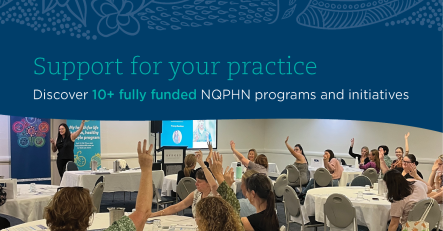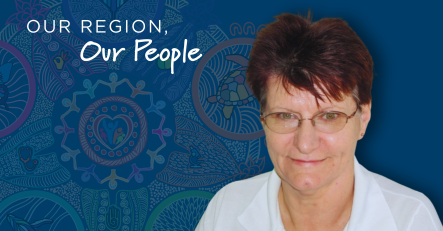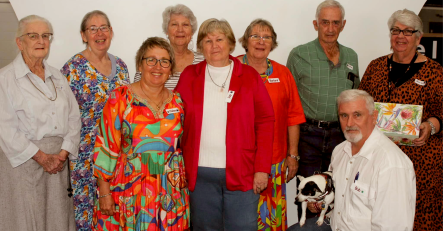How can we help you today?
It is estimated that 17 per cent of NQPHN’s population are over 65 years (50 years for First Nations peoples). As people get older, it is more likely they will need aged care services. However, the aged care system is complex and some people find it more difficult than others to navigate and access the services they need.
Similarly, when people need to move into a residential aged care home (RACH), they are moving into a care system that is facing challenges. For this reason, NQPHN has a number of commissioning initiatives to improve older persons care in the community and in RACHs.
Commissioning priorities for 2024 are:
- Older persons Medication Management
Commissioning priorities for 2023 were:
-
Care Finder program (Read the lead provider announcement here.)
-
Telehealth in RACHs
-
RACH out of hours plans
-
Dementia Health Pathways and Consumer Resource
-
Early Intervention
Early intervention is supported by NQPHN's five year Chronic Conditions Strategy that will underpn system integration and innovation, workforce development, and primary care engagement for more effective chronic condition primary care service delivery.
The Care Finder program aims to establish and maintain a network of ‘Care Finders’ who are professionals in the community and who can provide intensive, face-to-face support for older persons who are isolated, or have no support person, and who are experiencing barriers to accessing and receiving the necessary support.
This initiative forms part of the Australian Government’s response to the Royal Commission into Aged Care Quality and Safety.
The organisations delivering the care finder services in North Queensland are Aged and Disability Advocacy (ADA) Australia, Footprints Community, Ozcare, ABIS, and Flinders Shire Council.
Read the lead provider announcement here.
Supporting RACH staff to increase availability and use of telehealth care for aged care residents promotes timely access to primary health care professionals where face-to-face consultation is not possible. RACHs require adequate telehealth facilities to support access to virtual consultations for residents.
This initiative assists participating RACHs to have appropriate telehealth equipment to enable their residents to virtually consult with medical specialists, GPs, and other clinicians. The telehealth facilities must be compatible with most existing virtual consult technology used by health care providers and guided by recognised telehealth standards.
This commissioned service also funds the training of RACH staff on how to use the telehealth facilities and provide support to residents in accessing virtual consultation services.
Enkindle is currently undertaking RACH consultation and mapping existing telehealth infrastructures with participating RACHs.
RACH residents can experience deterioration in their health during the after hours period, however, immediate transfer to hospital is not always clinically necessary. Lack of awareness and utilisation of out of hours services provided by GPs and other health professionals leads residents to unnecessary hospital presentations.
Therefore, it is important to support RACHs to enhance out of hours supports and after hours plans.
This commissioned service aims to enhance the out of hours support for participating RACHs. To achieve this, RACHs will be supported to develop appropriate after hours plans, educate their staff on after-hours healthcare options and processes for residents, encourage the implementation of procedures to keep residents' digital medical records up-to-date, particularly following an episode where after-hours care was required, and support the engagement between RACHs, GPs, and other health professionals in developing an after hours action plan.
Dementia is the second leading cause of death in Australia, with the incidence of dementia predicted to double in 2058. Early diagnosis of dementia is extremely important to delay progression of the disease and premature entry to RACHs. Older persons need better access to support services and assistance to navigate the complex system through which care is required.
This initiative supports primary care practitioners' access to the HealthPathways tool, promotes best practice care, enhances local clinicians' awareness of referral options and services, improves collaboration and integration of healthcare systems, and develops consumer-focused dementia support pathway resources.
Commissioning early interventions for healthy ageing and management of chronic disease conditions is essential as older Australians are entering RACHs earlier than they may otherwise need due to lack of supports for healthy ageing or ability to manage their chronic conditions in the community.
This initiative focuses on empowering North Queenslanders to be proactive in seeking supports and take ownership in managing their own health and lifestyle to live safely at home and in the community for longer.
Increasing awareness of the existing commissioned early intervention programs that promote healthy ageing, social connection, and slow disease progression for health professionals and older Australians forms part of this initiative.











